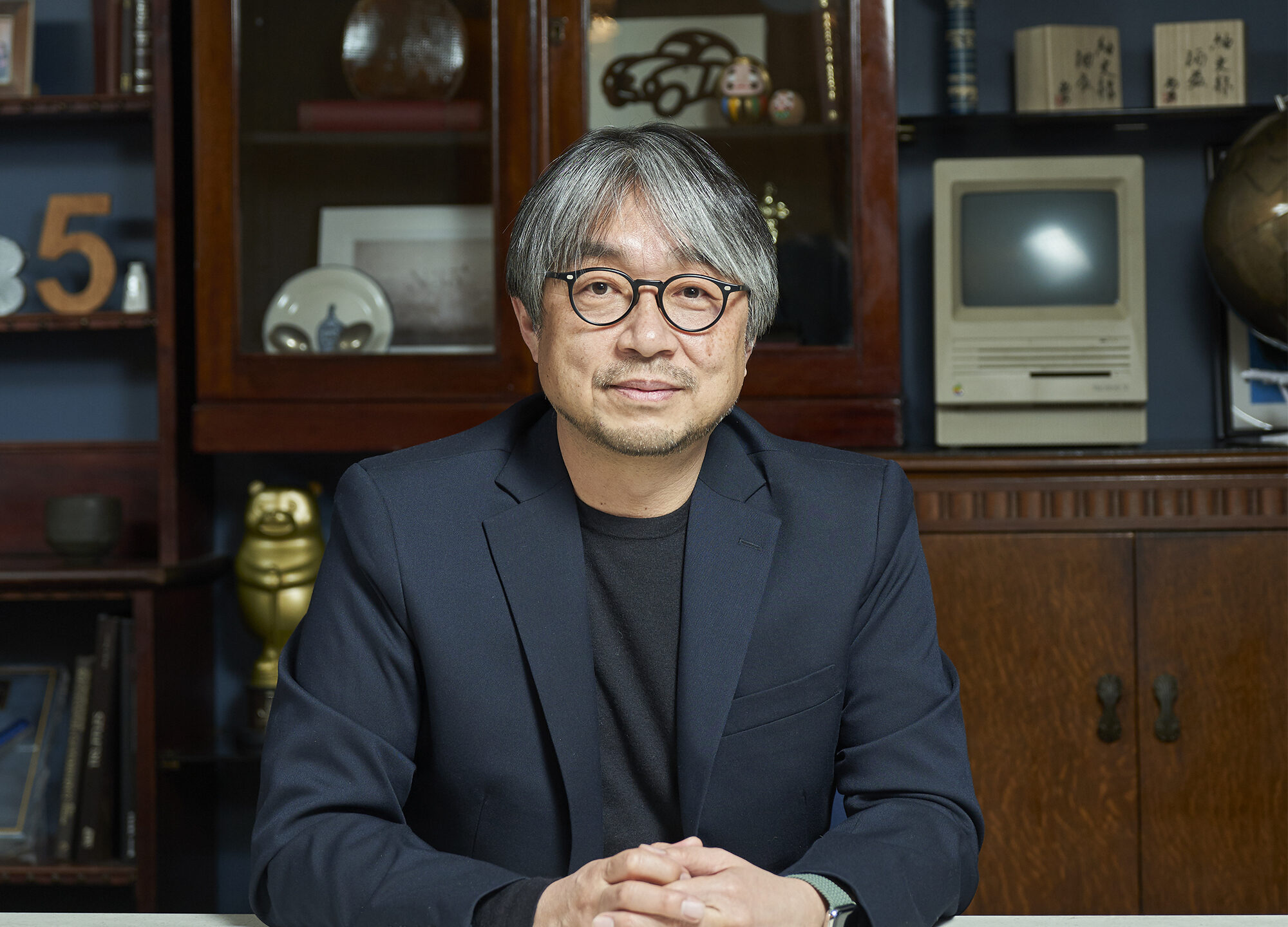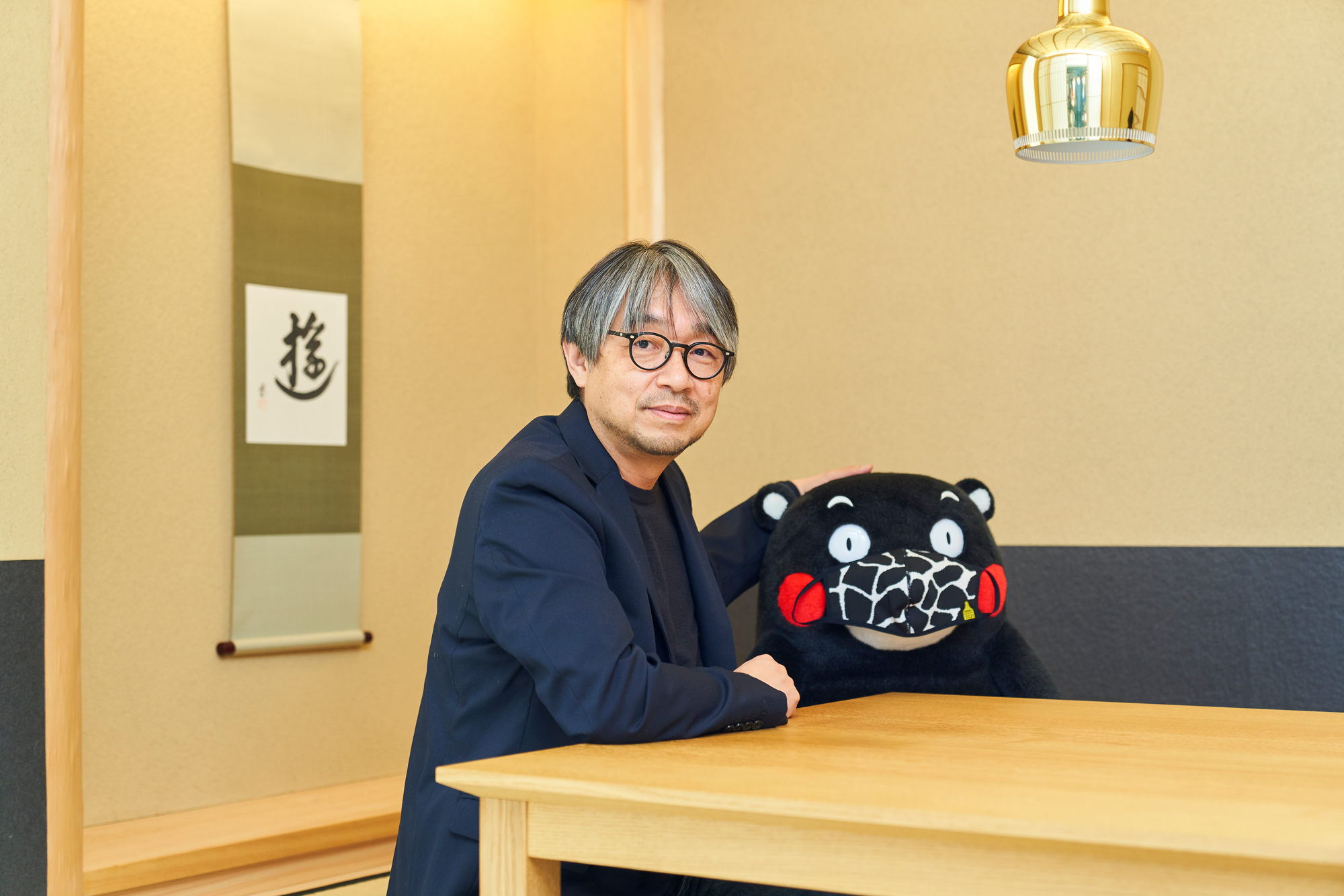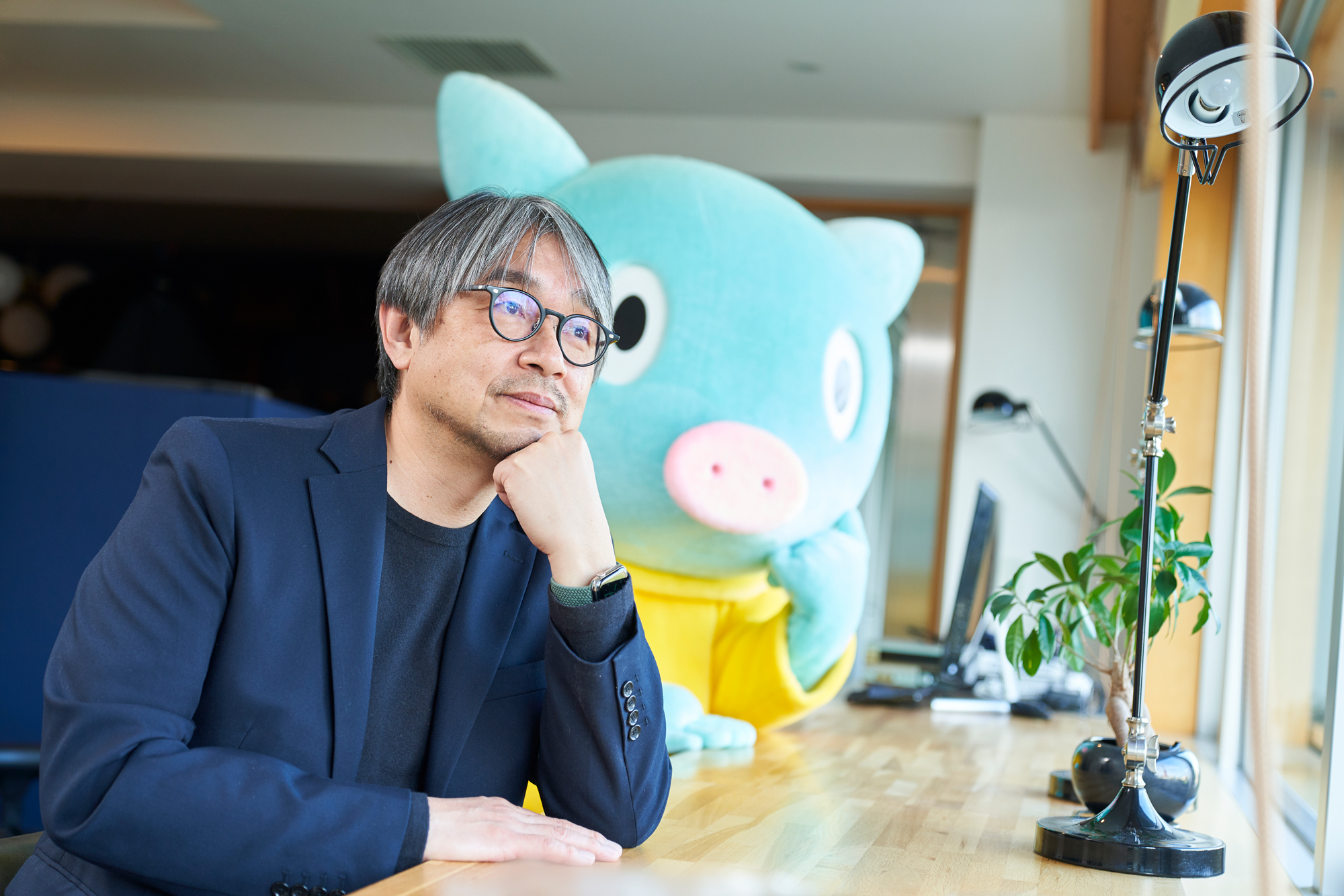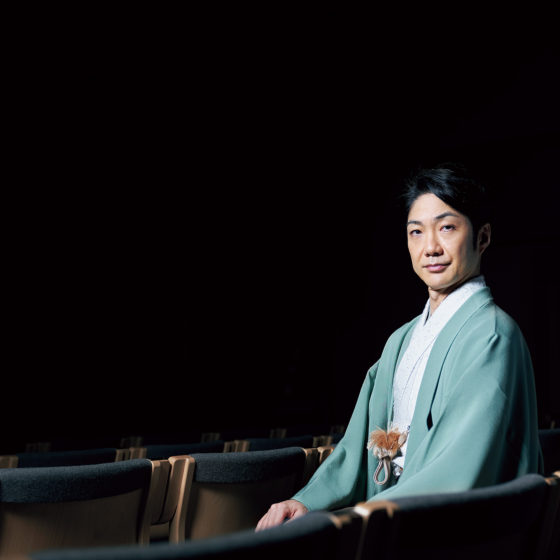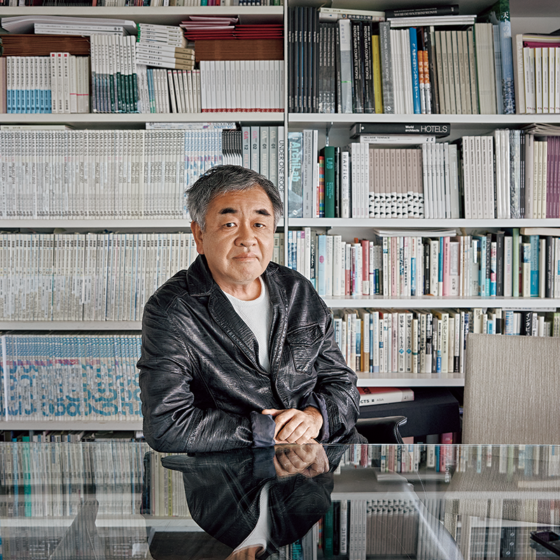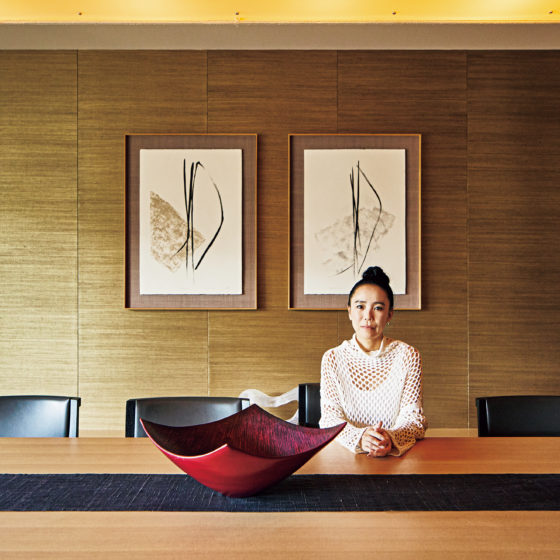Lessons from the Japanese tearoom: space doesn’t equate to comfort
- Kundo Koyama is known for creating Kumamon, a mascot character for Kumamoto Prefecture, and writing the screenplay for the Japanese movie Departures. He is also known to be a hotel aficionado. He has used hotels as the backdrop for a number of his screenwriting projects including television dramas and movies. I paid a visit to his office hoping to ask him about his ideal hotel and the type of relaxing spaces. When I arrived, though, I was surprised to see a stucco walled Japanese tearoom right in the middle of his office in a condominium.
- “Eight years ago I took over the reins of a famous old restaurant in Kyoto (Shimogamo Saryo) as its proprietor. As I became connected to the world of the tea ceremony, I found myself rediscovering a slice of Japanese culture. Those of us raised with a Western perspective have been taught that “space equals comfort.” Yet, after looking at a Japanese tearoom, I once again felt that this is just not the case. A Japanese tearoom covers at best 4.5 tatami mats (about 7.3㎡ ), but even with a space of just two or three tatami mats it provides an abundant world view. This office is a Western-style space. I installed a tearoom within this space because I felt it would provide a sense of comfort.
- The allure of the tearoom can also apply to hotels. This is mainly because both the tearoom and hotel represent a place that provides a change of pace from everyday life. I have liked hotels since my childhood. As a matter of fact, I liked them so much that I sat for an entrance exam for a university in Tokyo just to stay at a hotel in Tokyo. Hotels provide a backdrop that is out of the ordinary. You can change your feeling and perspective simply by visiting one. Creating a tearoom in my office provides a space where I can escape, relax and unwind.”
Toward a new era when hotels provide a source of value for communities
- Looking back, your work has included a large number of stories derived from hotel culture, such as Iron Chef and Palais de Z: Future of Tastefulness, both of which grew gourmet food culture, along with Tokyo Wonder Hotel, a television drama where the main character searches for the ideal hotel. In this sense, the hotel is also a “place for sowing seeds.” The hotel has been a source of your curiosity since childhood.
- “The hotel is originally from the West, but I find that “the ability to be considerate of others,” which stands at the heart of hotel services, is stronger in the Japanese people than in Western people. Japan is a confined country with its people living in homes made of paper and wood, so we have developed sense of being considerate toward others during our daily lives. In contrast, people who live in stone and brick houses in vast countries tend to have a stronger sense of self. For this reason, Japanese people have a higher level of service skills, I believe.”
- What are your thoughts on the ideal hotel?
- “A hotel where not only people from other places, but also people living in the local community can have an emotional attachment. Recently, I’ve really been drawn to such a place. A hotel that does not separate users from locals, but provides some form of connectivity to both. I believe this leads to customer satisfaction. The other day I visited an old farmhouse transformed into a hotel by young entrepreneurs. While there are many such initiatives in Japan to restore old farmhouses, this particular hotel had the foresight of opening a bakery onsite with delicious fare. The bread the bakery sells is so delicious that not only the guests but people from the community come to buy it. Guests often become envious that locals can buy such delicious bread. Many rural people in Japan are humble, thinking there really is nothing of interest in their community, but when this “envy” of guests is conveyed to locals, the hotel is transformed into a form of value for the local community.
- This could mean an increase in people moving there or create a hybrid lifestyle where people own a second home in the community. Like the legendary Hotel Chelsea in New York, this is a hotel where you can feel the community, where you can feel people’s warmth. A hotel where you can have a simulated experience of life in the community is necessary for the future. This ability to close the gap between communities and people is a clear value proposition for today’s hotels.”
The spirit of NOSARI applies particularly today
- During the COVID-19 pandemic, however, it is difficult to shrink the physical distance for feeling people’s warmth or the sense of community. What are your thoughts during this new normal and how are you spending your life?
- “COVID-19 has been like a filter for me. A filter that has helped to show me what is truly necessary and unnecessary. The pandemic provided an opportunity for me to question whether each and every aspect of my life and actions was truly essential.
- The pandemic has brought back the old pastime of letter writing. Recently, I have been exchanging letters with illustrator and graphic designer Seitaro Kuroda. This began when he appeared on my radio show as a guest. I said, “Write me a letter and I’ll write you back.” He actually sent me a letter. He sends at least two or three letters a week. When I sent him shochu as a gift, he even drew a picture on the empty bottle and returned it to me.
- COVID-19 has called into question people’s communication. The “space” between letters is really good. You imagine things after writing the letter and placing it in the post. You think about where your letter is right this minute. If someone doesn’t reply to your email, you get into a huff, but if there is no response to a letter you don’t feel all that bad. This rhythm may have returned to me as something necessary. One of the good things about the pandemic is that I rediscovered connecting through letters.
- The word nosari is another topic I would like to share because of COVID-19. This word is from the Amakusa dialect of my hometown. It means there will be ups and downs in life, but everything is a gift from the heavens. You should live life to the fullest while embracing this. COVID-19 is a true embodiment of nosari. This word may be unique to Amakusa because of its turbulent historical experiences including the suppression of the Jesuits and the Shimabara Rebellion. I feel that today is precisely the time to embrace this spirit.”
Creating a venue for discussing the future through food
- You are rather busy even during the pandemic. You are serving as a producer for Expo 2025 Osaka Kansai scheduled to take place in 2025. What are your thoughts about the event’s sub-theme of “Spinning Lives.”
- “I’m responsible for the venue where eventgoers will think about life through food. While it is a very catchy topic, food is also closely related to social issues, including the problem of hunger. Through the fundamental questions of what it means to eat and what it means to be delicious, I hope to provide an experience that will redefine our preconceptions of food.
- Being able to remove these preconceptions will make it possible for people to take notice of the things that they can do to address social issues. Nevertheless, the focal point of my event planning is to make things fun, so I don’t want to make the venue too uptight. I hope to create an exhibition that makes people happy thinking about the future. This is what I’ve been thinking these days.
- “If asked about the meaning of the EXPO, I would respond that it can create opportunities to discuss the future. In today’s era, we are too busy to think about what is in front of us. I feel like we have fewer opportunities to imagine a bright future. At the EXPO, we will discuss, think about, and imagine the future in store for us 50 years and 100 years down the line. If we create such opportunities, I believe the EXPO can be made into something meaningful.”



